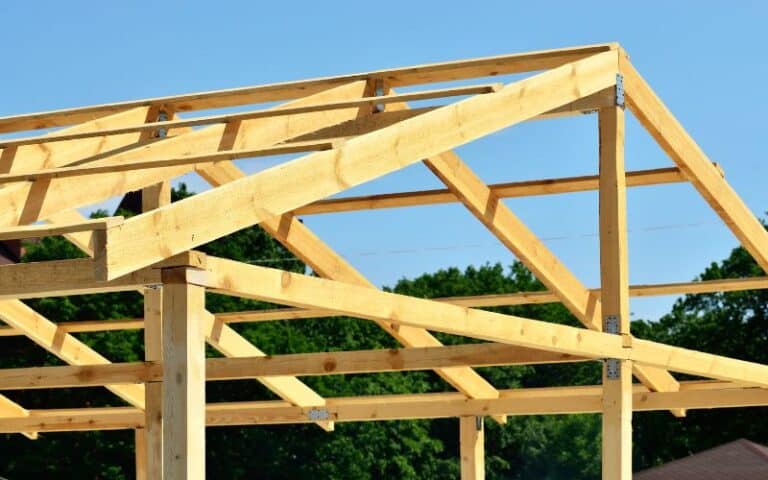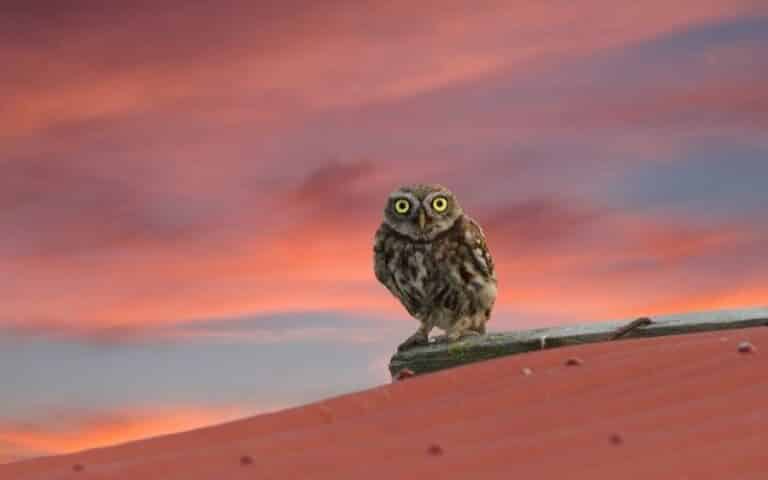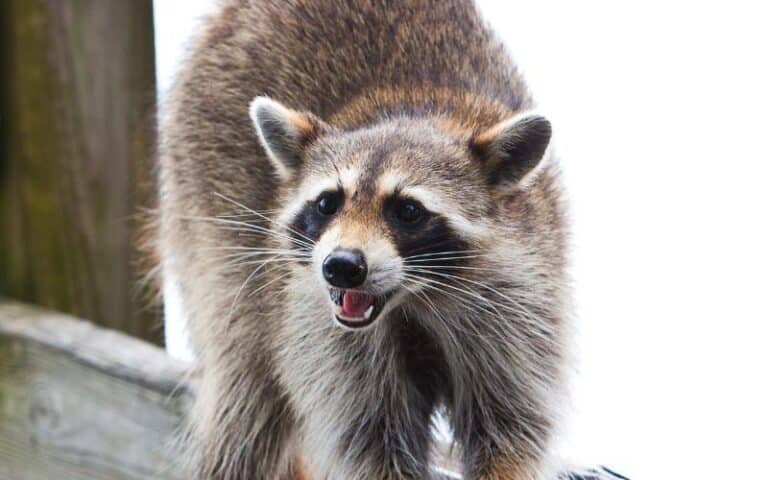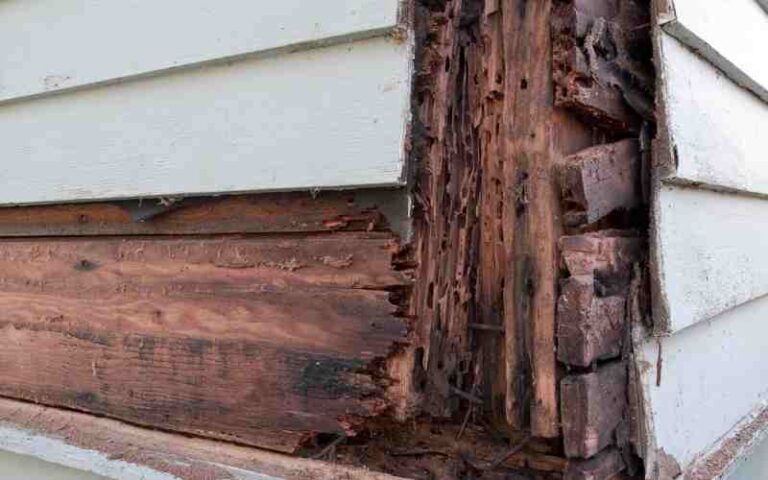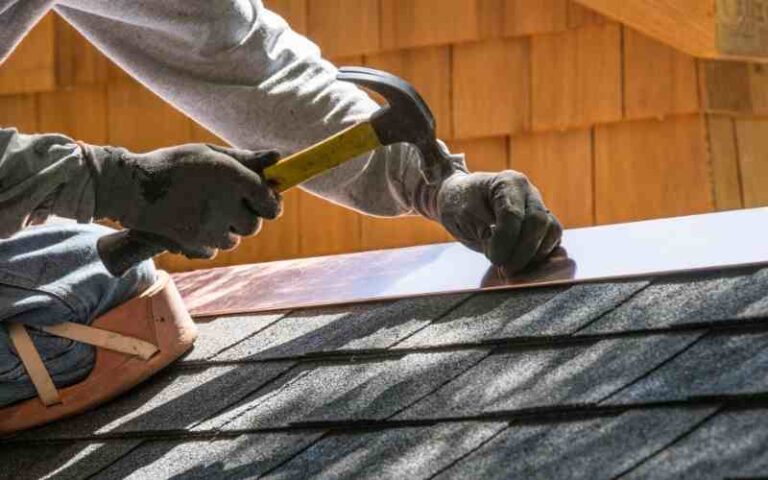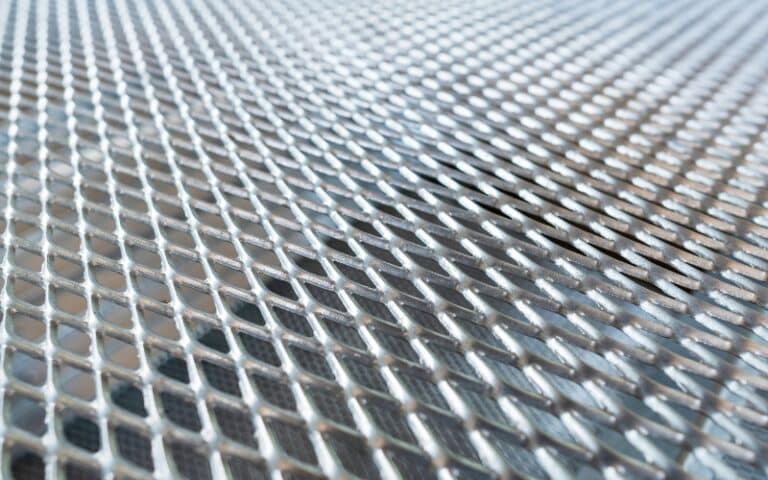Vultures, also known as buzzards, are scavengers that hunt dead meat for food. In this way, they also help in the decomposition process of the dead body.
However, vultures are also notable for their disturbances on house roofs. These creatures sense death through smell and represent death in some cultures and religions.
Therefore, a buzzard on your roof can mean quite different things depending on your region and environment.
A vulture on your roof means a dead animal or rotten piece of meat is laying around your house. The birds have a high sense of smell that helps them trace the source of decaying meat. Vultures are also attracted to the sound of shingles when it expands and contracts. Unfortunately, these scavengers often mistake the sound for insect-popping sounds.
Ready for a Roofing Quiz?
What Does It Mean When a Vulture Lands on Your House?
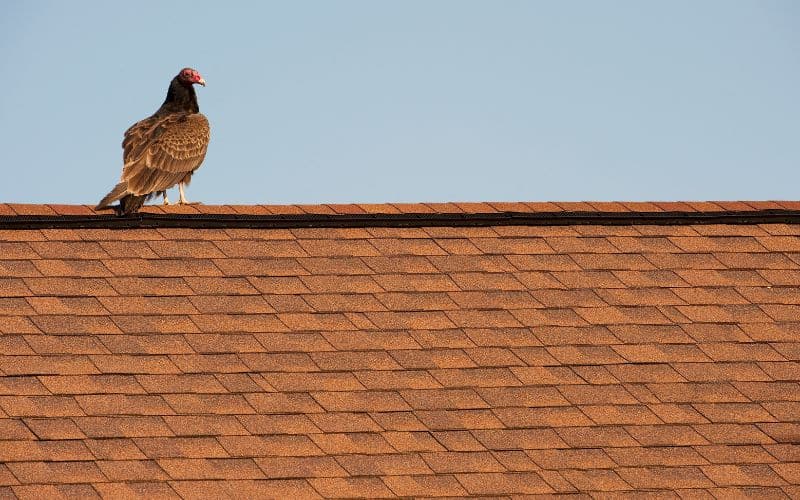
When a vulture lands on your house, it is mostly because they sense food in your house and are trying to locate it.
Other times, it is because they are trying to increase their body temperature in the morning and your house has a thermal spot to help achieve this purpose.
So they would stretch their wings and bask in the heat to spread the heat around their body.
So, if you see a vulture landing on your house or the roof, there is a lump of rotting meat or carrion nearby.
The scavenger bird visitation will be frequent if you have a farm and do not dispose of unwanted meats properly.
Cow afterbirth, road kills, meat dressing sites, or any dead organism in the vicinity also attracts vultures.
However, you can eliminate these birds by making loud noise or properly disposing of any dead meat.
Why Are Turkey Vultures on My Roof?
If there are turkey vultures on your roof, it is because they are attracted by the smell of dead meat in your house, on the roof, or they are trying to locate the food source in your house.
Unlike other vulture species, the turkey vulture has a strong sense of smell which help it detect the scent of carrion from a long distance.
Roofs are designed to last through constant exposure to different weather conditions. However, roofing surfaces cannot withstand constant extra weight for long.
The weight of the vultures, coupled with their scraping, can wear your roofing surface down.
Understanding why they land on the roof and cause damage to its surface is necessary to protect your roof against turkey vultures.
When vultures perch on a roof, they tend to clean their beaks on the roof surface. They may also peck constantly on the roof due to the expanding popping sound from the roof.
Aside from hunting food from your house roof, there are other reasons a turkey is perching on your roof.
One of these reasons is the crackling sounds emanating from your roof during the heat-to-cool periods of the day.
Unfortunately, vultures often mistake the sounds for insect sounds and constantly peck on your roof to draw out imaginary insects. Another reason the turkey stays on your roof is to set up a nest on your roof.
A roof gives them a better hunting view and protects them from potential predators, especially if your house is close to a source of carrion that they can hunt.
Roof surfaces are flat and can hide them from view. When vultures roost on your roof, it can get damaged from pecking and scraping.
Some vultures are only on your roof due to the thermal air on the roof area. They also perch on your roof after feeding to rest and clean their beaks of debris on the roof surface.
However, you can eliminate these creatures with devices like predator decoys, bird nests, or sprinklers.
Can Vultures Sense Death?
Vultures can use their sense of smell to detect dead animals from a long distance. For instance, they can sniff out the smell of the chemicals from carrion from two to three miles away.
Unlike other birds, vultures have well-developed and sizeable olfactory organs with many nerve endings.
With their heightened sense of smell, they can sense a dead rat from a mile, even when there are obstructions like buildings or trees.
However, only turkey vultures have this high sense of smell. In contrast, the black vultures mainly use their eyesight to locate dead meat.
The chemical released from dead bodies is Ethyl mercaptan which consists of sulfur, carbon, and hydrogen.
The chemical is also responsible for bad breath and gas and is naturally released in high quantities once an organism becomes non-living.
If a vulture does not perceive the smell of Ethyl mercaptan in large quantities on the dead body, it will not consider the carrion edible.
While turkey vultures only consume dead animals, black vultures often eat small living organisms like fish, turtle hatchlings, baby skunks, and piglets.
Black vultures also hunt in groups to easily overpower small live prey. Well, here are the differences between black and turkey vultures:
| Black Vultures | Turkey Vultures |
|---|---|
| Have black plumage, with a gray-black, bald head. | Have red-colored heads with brownish-black bodies. |
| Have wingspans that reach up to 5 ft., with a height of 2 ft. b | Their height is about 2.5 ft. tall, with wingspans of 6 ft. |
| They lack the sense of smell and mainly depend on their sight to hunt prey. | Have a heightened sense of smell and can track carrion miles away, hidden or open. |
| Feeds on dead animals and also small and young live animals. | They only feed on dead animals. |
| Hunt in large groups | Hunt alone or in smaller groups |
What Does It Mean When Black Vultures Are Around Your House?
When you notice black vultures hanging around your house, it usually indicates a lump of exposed dead meat around your house.
Black vultures rely on their sight and turkey vultures to find prey. Since they lack a sense of smell, they take advantage of the turkey vultures by watching and following them during hunting.
Black vultures a more aggressive and do not easily locate prey by smell. Therefore, if you notice them hanging around your house, it is mainly because rotting meat is somewhere in your house.
However, there are other reasons why black vultures hang around your house. Some of the reasons include:
#1. Looking for Carrion
If your area has a history of dead animals in the past or a previous vulture feeding ground, it might be the reason black vultures are hanging around your house.
Since black vultures rely on their sharp sight, they cannot sniff out carrions like the Turkey vulture. So, they wait around or wait for a red vulture to start hunting before moving.
#2. Nesting
Most vultures often hatch from wild nests, and they can lay eggs anywhere they find comfortable, including on the ground.
However, after they lay their eggs, the creatures stay around the area to constantly incubate the eggs before it hatches.
So, if you see vultures hanging around your house, it probably means their eggs are in your house.
#3. Waiting for Carcass To Rot
Another reason you might see vultures hanging around your house is that they are waiting for the dead bodies to rot.
The scavengers watch the carcass cautiously for about two to eight hours before feeding.
Also, if the dead body is difficult to tear apart, they might wait a while before trying to feed on it again.
#4. Social Gathering
Vultures are very social birds despite their feeding routine. They gather in groups at night to rest and spend time with their young ones.
Most vultures are very defensive about their kids. So if you see a group of vultures hanging around your home, it might be a group of vultures just resting.
Are Black Vultures an Omen?
Vultures are omens in some cultures, some bad, others good. It usually depends on your culture or context.
For instance, in some cultures, vultures symbolize good omen because they help decompose dead bodies without causing harm.
However, in some regions like Native America, vultures symbolize aggression, deceit, and death.
Though vultures are often connected to death, they assist the environment by hastening the decomposition of carcasses.
How Do I Get Rid of Vultures on My Roof?
You can get rid of vultures on your roof by using prey decoys, fear sound systems, bird nets, and by making a loud noise.
State laws protect vultures in some regions, so you must confirm before getting rid of them with guns or other harmful methods.
Below are some of the methods you can use to chase vultures from your roof:
- Scaring them with sonic cannon.
- Installing electric bird shock tracks on your roof.
- Scaring the scavengers with vulture distress sounds from anti-bird sound repelling devices.
- Intimidate the vultures with scarecrow predator decoys like owl decoys.
- Dispose of your garbage and clean up properly after washing or cleaning raw meat.
Conclusion
If you notice vultures on your roof, they might have varying meanings, depending on your context.
Vultures are mostly attracted to the smell or sight of carcasses, and they also like to bask at thermal spots to warm themselves after a long flight.
However, you can properly get rid of these creatures if you are not comfortable with their presence on your roof.

